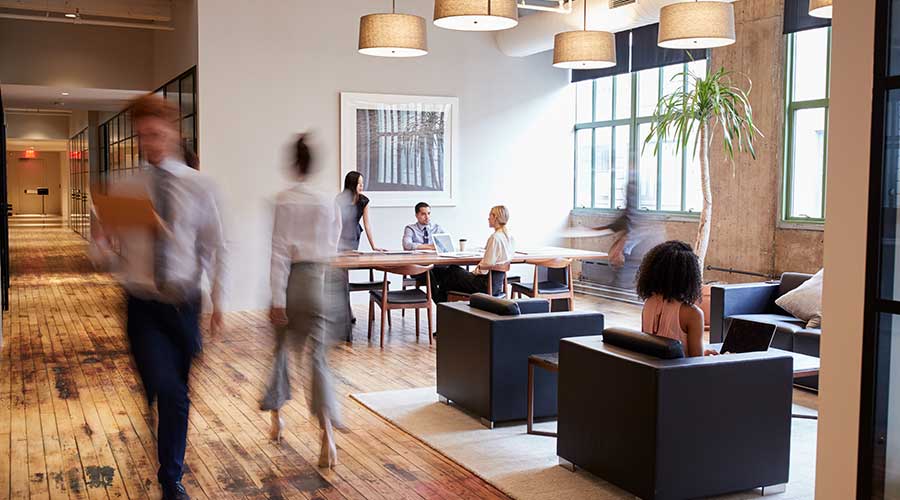Effective facility and space management is critical for organizations navigating hybrid work environments and evolving occupancy needs. Leveraging data-driven insights is key to optimizing office spaces, managing growth, and addressing the diverse requirements of business units.
Organizations like Florida Power and Light demonstrate the importance of basing occupancy strategies on data rather than assumptions. Tools like occupancy sensors and badge data provide actionable insights into space utilization, employee behavior, and team-specific needs. For example, overhead ceiling sensors and badge data reveal how often spaces are used, the number of occupants, and team behaviors. These tools support decisions on whether to assign dedicated spaces or implement shared-space models.
In his presentation from NFMT Remix, Bill Comer, senior director corporate real estate facilities for Florida Power and Light Company, shares how data insights enable organizations to design spaces that meet actual needs.
For instance, with conference room usage, analyzing data on meeting sizes often reveals inefficiencies. Instead of large underused rooms, smaller huddle spaces for three to four people were created to accommodate demand.
In an another example from Florida Power and Light, teams like developers who spend time in the field benefit from shared spaces rather than dedicated desks. Conversely, consistent office users, such as accounting teams, require assigned seating.
However, challenges often arise when making changes, like in the aforementioned examples.
Moving to shared or flexible seating arrangements can initially dissatisfy employees. Effective communication and highlighting benefits like autonomy and cost savings help mitigate resistance.
Leadership buy-in is crucial for funding and promoting these strategies. Data-backed proposals demonstrating cost savings and efficiency gains are key to securing support.
When encouraging workers to return to the office, employee experience must be a priority. This could include incorporating flexible workspace reservation systems that allow employees to book seats or huddle rooms. It also may mean adding amenities that improve the office environment, such as natural light, cafes, and collaborative zones.
Log in or join fnPrime to start watching today.





